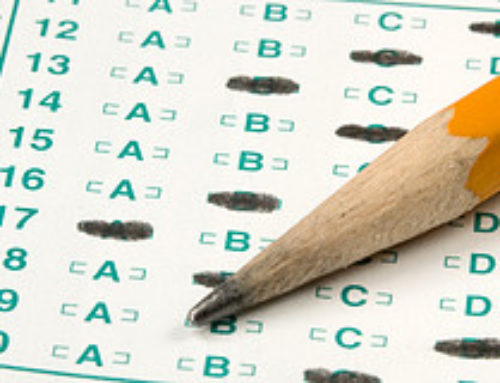
Grade “A” Students with Low Test Scores
Is This You?
You’re a bright student. You get A’s on all of your assignments, you study hard, participate in class, your papers are flawless, and your professor loves you. You’re the perfect student! Yet somehow, you can’t seem to get an “A” on an exam to save your life, and so your grades suffer.
Does it seem like every time you take a test, your brain gets foggy and you can’t remember everything you spent hours studying?
While it can be very frustrating, this is a very common issue for high-achieving students. Frequently, low test scores aren’t an indicator of a student’s lack of knowledge, but rather of a student’s difficulty thriving in a stressful testing environment.
Your Brain Under Stress
Taking tests can be very emotional and challenging. Especially timed tests. Your brain already perceives tests as a stressful thing. If you don’t get a good grade, you don’t progress in school, or you don’t get the job you want, or you look incompetent; all of these implications translate to the brain as negative outcomes, and the brain sees this as a threat. This reaction is amplified when a test is timed. The brain perceives the idea of a time limit as a threat, and it creates confusion and anxiety in the mind and body as a result.
The reason for this is that when the brain feels threatened, it goes into survival mode. It dumps adrenaline into the bloodstream which constricts blood vessels and removes blood supply from the brain and extremities and shifts it to the heart and major muscle groups. The result is that your brain can’t function properly, and your fine motor skills also begin to suffer. This is why you begin to feel foggy and clumsy during a test.
Another reason for your brain’s reaction to timed tests is that, as a Grade “A” student, you most likely read slowly.
Profile of a Grade “A” Student
Students who excel in class and on homework assignments usually have a certain profile. These attributes in their personality and disposition are what give them the excellent results they experience in class and on homework assignments. They’re also what leads to the excellent students getting low test scores. Below is a list of a few of the key attributes of a grade “A” student’s profile, which you may recognize in yourself.
Accurate. You typically are very thorough and will take whatever time is required to learn and master a concept and, ensuring a correct, accurate answer.
Methodical. You have a method to your madness. You have a process for everything you do, including study. This methodical approach allows you to think clearly, identify critical information, focus on it and review the information thoroughly, giving it thought and attention.
Perfectionists. You don’t succeed in education on accident. It takes dedication. You never submit a paper or an assignment unless it is perfect. It takes time to achieve perfection, but the sacrifice pays off in the form of outstanding grades.
Deep Thinkers. A grade “A” student is usually a deep thinker. When you study, you think through a concept very thoroughly. This leads you to understand nuances and complexities that are lost on other students. As a result, you not only memorize facts, but you also master the material with a deep understanding.
Slow Readers. Because motivated, high-achieving students take their time and think things through. You are probably accustomed to reading slowly. You take your time getting through your reading material so that you can absorb and understand it. This is good, in that it gives you a great understanding of your study subjects, but when a timed test comes along and you try to read slowly. You end up running out of time and guessing on a large portion of the test. This inevitably leads to low test scores, which can ruin an otherwise excellent grade.
Overcoming Low Test Scores
While your current study habits may help you learn and understand the principles of your college classes, they aren’t going to help your brain when it is under the stress of a timed test. When taking a test, you need to spend more of your time on thinking through and answering the questions than on simply reading the questions.
In order to allow your brain to think clearly and read fast enough for you to work through a test and finish it, you need to train it to function under challenging, timed conditions. You can do this by taking practice tests, but it’s hard to take practice tests for all of your exams. Many mid-terms and finals won’t even have practice exams available.
The easiest way to get your brain up to speed is with a reading and brain training software like eyeQ. The eyeQ program uses high-speed exercises to challenge and stimulate the brain. It will help you read more quickly, but it will also help your brain become accustomed to thinking in a difficult environment. As your brain becomes accustomed to the higher speeds and the challenge of thinking clearly in a timed environment, it will learn to function more efficiently when you take your tests.
Once your reading skills have improved, your low test scores will begin to go away. You’ll have the time to read test questions, process the answers, and record your responses.
You’ve already done the studying. You know the material. With eyeQ, you can overcome the challenges of timed tests and increase your test scores. If you want to see what eyeQ can do for you, click here to try a free demo. You’ll be amazed at what you can do!











